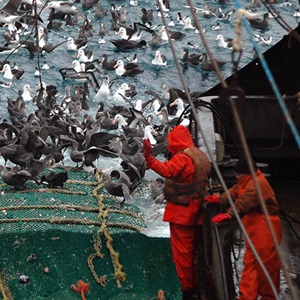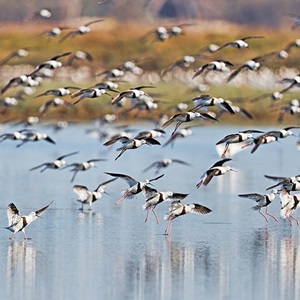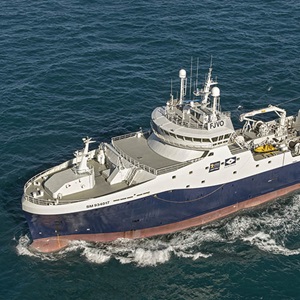Training fishers to ID, handle and collect data to reduce bycatch of turtles and improve their survival:
- Equipping fishers with tools and training for the identification and handling of turtle bycatch.
- Compiling primary datasets from the turtle bycatch of the coastal longline fishery of Réunion.
- Using environmental conditions and seasonality data to minimise bycatch and avoid turtles.
Start date: April 2023
€57,781.50
(£51,044) awarded
Awardee
Association Réunionnaise Interprofessionnelle de La Pêche et de l'Aquaculture (ARIPA)
Fishery
Réunion Island swordfish longline fishery
Training fishers in handling and release
Research supported by the MSC Science and Research Fund will enable coastal longline swordfish fishers to correctly identify, handle and release, reduce bycatch, and improve survival rates of turtles.
The handling and release training is particularly important as loggerhead turtles (Carreta carreta) are the main species of turtle bycatch in this fishery. This species has been classified as ‘Vulnerable’ by the International Union for Conservation of Nature (IUCN - Red List of Threatened Species).
Fishers will be equipped with onboard turtle handling kits and a prototype net/spinner designed to remove caught turtles from the water with care, without pulling on lines or hooks.
Turtles with hooks that cannot be removed on board are transported to Kelonia Care Center - a veterinary rehabilitation centre. The survival rate of these turtles is estimated as 80% and the fisher/scientist collaboration has saved more than 400 turtles (mainly loggerheads) to date.
Improving understanding of turtle migratory patterns and behaviours
Water temperature has a profound effect on turtle life cycles, migratory patterns, and the depths at which they swim. Fishers have noted the frequency and amount of turtle bycatch varied across the year and by fishing area.
Fishers will collaborate with scientists at CITEB to collate environmental and seasonal data. Combining this with primary turtle data will provide a more detailed picture of the causes of increased turtle bycatch.
"This funding will allow us to train fishers in monitoring, handling and release, and allow scientists to identify corridors and conditions of sea turtle migration." Pierre-Yves Brachelet, ARIPA
These strategies and fisher-enabled research will support the fishery to close a condition of certification to the MSC Fisheries Standard that requires better data on bycatch.



